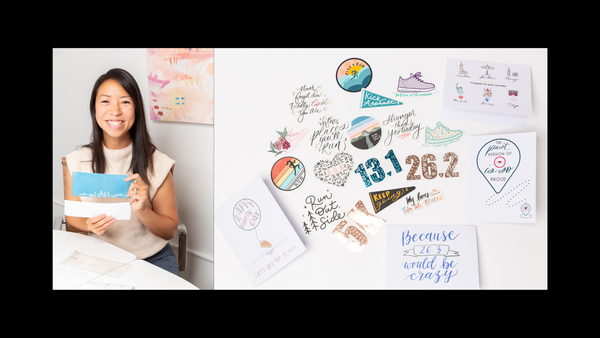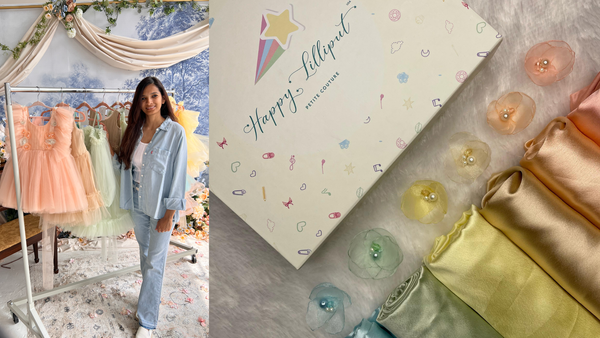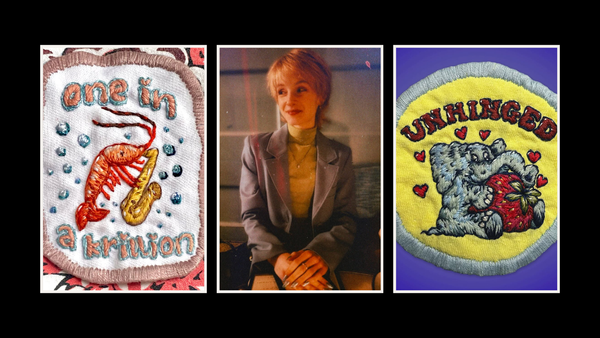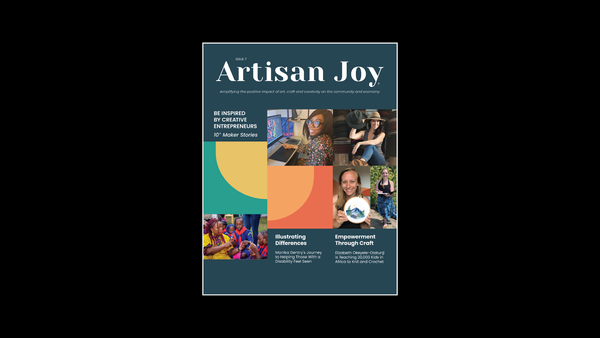Can You Change Careers in Your 50s? How This Fashion Designer Did It


Can you change careers in your 50s? Shreya Patel did. She is the co-founder, designer and creative director at Tanisi, an ethical women’s clothing brand featuring chic designs with Indian panache. Shreya’s founder story inspires us on multiple levels. For one, she moved to the U.S. with her family after a lengthy finance career in India. She used the move as an opportunity to pursue her love of fashion design. Proving that age means nothing when embarking on a new career, Shreya launched Tanisi after age 50 with her daughter Axi.
Tanisi partners with artisans in India to create its pieces. When asked to describe her work in fashion, Shreya said, “I design timeless, elegant, handmade women’s clothing that showcases the talent of skilled artisans while also creating jobs with fair pay and good working conditions in my home country of India.”
In addition to ethical production, sustainability is top of mind at Tanisi. The business aims to reduce its carbon footprint by repurposing fabrics and reducing fabric wastage. Tanisi also uses eco-friendly packaging and minimizes the use of resources, according to its website.
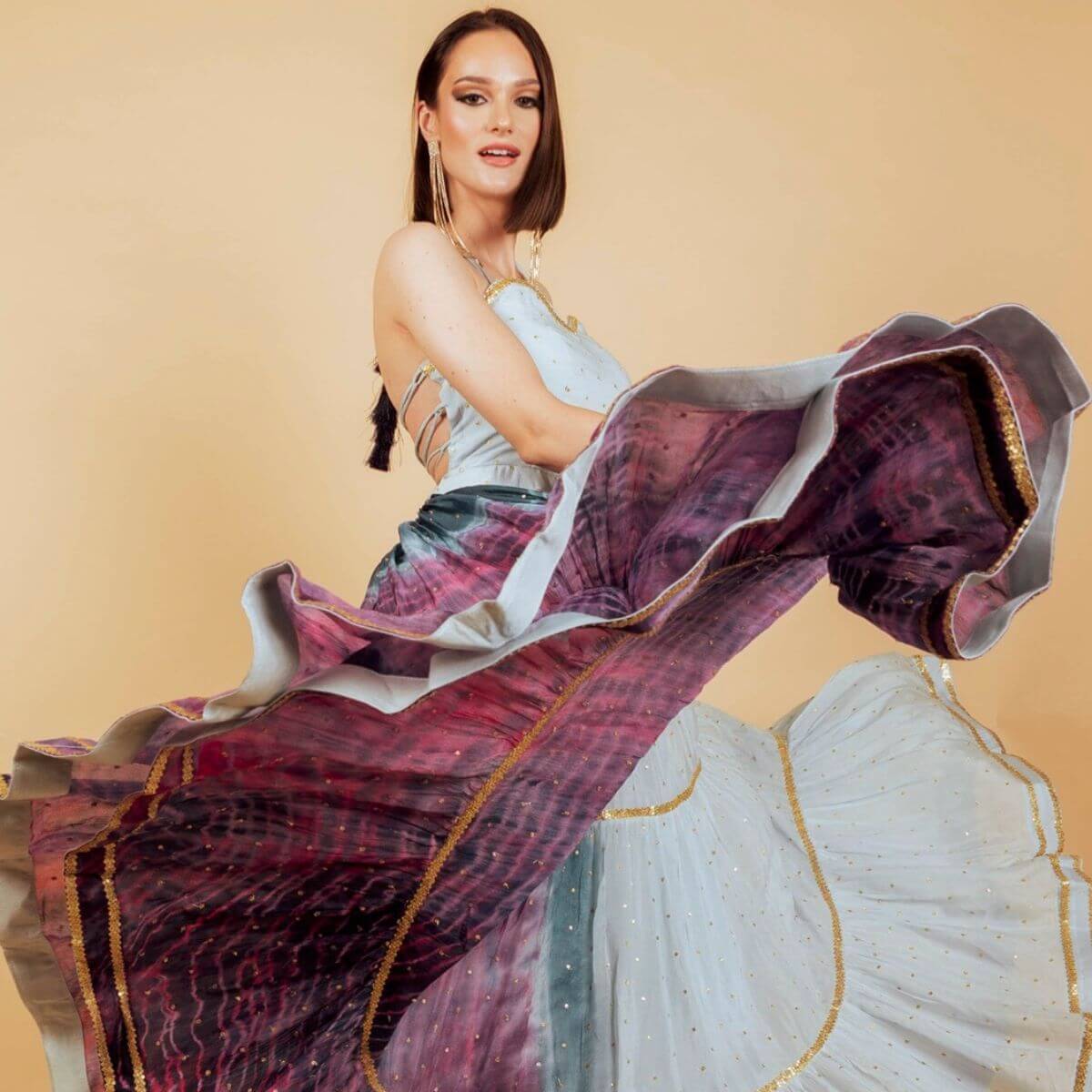
Artisan Joy: How did you get started in the fashion business?
Shreya Patel: After spending a career in operations and accounting, I moved from India with my family to the U.S. I was over the age of 50 and decided to take the opportunity for a career change to pursue my passion in fashion. I took classes at Parsons School of Design and launched my first brand, Raas the Global Desi, which features Indian-style clothing.
A few years later, my daughter, Axi, joined me to launch Tanisi, a line designed for a U.S. audience. The mission behind Tanisi quickly grew beyond just designing beautiful clothing, however. We realized that with each piece we made, we had an opportunity to create jobs with ethical working conditions and fair pay in India—where those jobs in manufacturing are not as common.
And so, as I design, I also look at the jobs that will be created by manufacturing each piece as part of my process. For example, our summer line features many block-printed styles. These block-prints require an artisan to hand-carve a wooden block, and then our workers in our units hand stamp the pattern onto the clothes. Not only does this make each piece unique, but it creates jobs and opportunities with each purchase.

AJ: When did you realize that you could turn your craft into a business?
SP: The market demand, the possibility of giving back to my community, and the ideas that kept coming in between myself and my daughter—all of these were truly inspirational. Plus, I had already quit my other work to invest more time and energy in this.
AJ: Where do you find inspiration?
SP: Inspiration is everywhere, in the U.S. and back home. In my own house and on the streets. Our extremely skilled artisans inspire us. There are so many ideas but so little time we feel.
AJ: What’s something our audience would be surprised to learn about you?
SP: Prior to starting a career in fashion, I had a successful career in business and operations! I started Tanisi after the age of 50. And beyond that, my daughter and business partner Axi is also a practicing physician. Tanisi is truly a creative outlet for us both.
AJ: As creatives, we can continuously create and refine our art. How do you handle perfectionism?
SP: We are not perfect and do not aspire to be either. We love experimenting with ideas and rolling them out. There are many instances when a particular block is used in several ways, creating different patterns and designs. So yes, creativity has no boundaries, nor can it ever be perfect.

AJ: What advice would you give to someone interested in putting their art out into the world but feels vulnerable about it?
SP: Vulnerability is good. It helps you in breaking boundaries and trying out new and different things. However, know your limits in your means and vision. Stay within that and create something for the world to see! In art, nothing is wrong or perfect. This doesn’t mean that you don’t follow aesthetics, either. There is a thin line between breaking boundaries to stand out and breaking boundaries that will hurt you. Stay close to your vision and be true to yourself. Be your best version.
AJ: What’s something that surprised you about running a creative business?
SP: Now it’s better, but initially, it was an uphill task to put our ideas across to the artisans. They have skills but lack aesthetics. We had not considered this at the beginning, but as we went along, we realized that it was real and so important. Another thing that I learned was that not restricted to creativity but generally business-wise is that everyone wants discounts, freebies and an affordable product line. It was tough to find that balance sticking to our vision of helping the artisans and satisfying the customers.
AJ: Has someone ever criticized your work? How did you handle it?
SP: Many times and sometimes, rightly so. Many people have turned around and questioned our prices, but we have managed to convince most of them after explaining our mission and what we stand for.

AJ: What’s a cause you are passionate about and why?
SP: It’s safe to say that my passion has shifted with time. I entered the fashion industry because I wanted to design beautiful clothes. Now adding to that, I want to give back. I want to help bridge the gap between the West and the East with the help of our artisans. Back home, many people follow a similar vision, but they don’t pay well. They focus on labor and getting work done. Whereas we get our work done by empowering them by paying for what makes them happy. It makes me very happy when they tell me how they’ve saved up for their daughter’s wedding or someone’s education. Or even how the money helped them in getting their children a better lifestyle and education. SEWA Bharat has been my inspiration.
AJ: And, of course, we have to ask you this: what brings you joy?
SP: I feel elated when I spot people wearing our designs. As mentioned earlier, empowering people makes me very joyous. A feeling and satisfaction that is beyond words.
Thanks, Shreya! You can follow Tanisi on Instagram, Twitter and Facebook, and shop the clothing line at alwaystanisi.com.
Editor’s Note: This interview was edited slightly for length and clarity.

